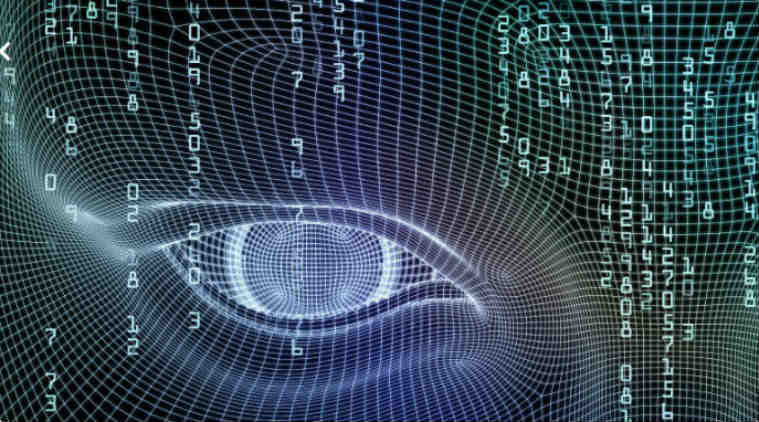
Is human consciousness useful for AI?
by NorthlinesSunil Mishra
Humans can experience things, narrate stories and feel happy or sad — this is where a robot or an AI lags.
When Lee Sedol, champion of Chinese game ‘Go’ was defeated by DeepMind (powered AI AlphaGo), the most common quote on social media was: “You lost and you cried, the computer won but it did not smile”
What can be the holy grail of artificial intelligence (AI)?
It is not the memory — today supercomputers can store more information than an average human brain with 100 billion neurons. It is also not computing power, which has long been exceeded by AI machines with petaflops (a unit of computing speed equal to one thousand million million floating-point operations per second). So far, we believed that computers could never learn, they needed to be hard-wired for certain goals. With neural networks and machine learning that citadel is increasingly getting invaded.
Today, AI can recognise images and voices with better accuracy than humans and we are still at the early stage of AI development. All three basic components of human intelligence – memory, computations and learnability have been successfully achieved by AI. But there are some questions still unanswered.
What makes us human has little to do with memory — computation and learning are an essential part of our intelligence. It is consciousness, awareness of self and ability to relate to the world around us makes humans apart from all other living creatures and inanimate matter.
Humans can experience things, narrate stories and feel happy or sad — this is where a robot or an AI lags. A self-driving car can go around the city, capture all the images yet can’t experience.
Imagine a person does not know Chinese and he is inside a closed room. A Chinese who knows Mandarin very well slips through the door, a set of Mandarin characters. Though the person in the room who does not know Mandarin has a rulebook where he can match the input symbols and find another set of symbols that would be the response to the first set of symbols. After some time, the Chinese person outside the room starts believing that the man inside the room knows Chinese. This thought experiment is used to demonstrate whether computers can understand even if they give the desired output. Can they think the way humans do? Can they be conscious and most importantly does that matter?
Consciousness is telling ourselves stories by observing the actions that others do and we do. The actions per se are driven by the modules in the brain which are mostly subconscious, while the consciousness only tries to justify the action. Thus, storytelling is constantly at work and we can’t switch it off willingly. Since most of these stories are created to justify actions that are mostly wrong.
A self-conscious car
Designing a self-conscious car would mean creating a part of the AI that will observe the behaviour of other cars (and itself) and keep guessing what is happening around – car A is angry because it is moving fast, car B could be unwell as it is so slow, car C must be hungry as it is moving to the gas station etc. The key thing in this consciousness module is that it should not be 100 per cent correct — most of this information is wrong. Will we ever buy a car like that?
Many scientists believe that human consciousness is a botch-up of evolution. Different parts of our brain evolved at different points in time and they are at conflict with each other. It is unlike a modern computer where all parts have been manufactured at the same time and they communicate with each other seamlessly. So, recreating a conscious machine is nothing else but adding those human imperfections. However, it does not make much sense as such. Hence, consciousness modules may not be useful for AI in real sense. Just as our submarines swim differently from the fishes and our planes fly not exactly like birds, a super-intelligent AI need not emulate human consciousness.
In medical science, the study of consciousness is considered a waste of time. In the case of consciousness, the limited use of medicine is to revive it among humans that are in a comatose stage or is brain dead.
Medical science does not focus much on the fundamental definition of consciousness and what it means in a larger sense. Most scientists believe that consciousness is an emergent property that can not be observed at the micro level but only comes into existence with a specific arrangement of information — just as wetness results from a unique arrangement of water molecules.
What if we unravel consciousness one day…
For a moment, let us imagine we can fathom consciousness through some quantum mechanics theory, and we create a level of human consciousness using AI. Will robots become like humans? Well, this will be the secondary question in that case. The primary question will be how humans will change if we can recreate consciousness at our will. Some of the humans may choose not to exist physically but convert themselves into an upload program.
If we can have a complete conscious experience without the need of our body – we will switch to digital life. The software program can be a substrate that can be downloaded to any physical form like a robot, a computer or a car. The human physical form is perishable, the upload programs can easily be copied and lived endlessly. Humans can choose to become immortals.
Whether consciousness is important for the development of AI is still a subject of discussion. However, for humans, consciousness is what makes us human. Without our consciousness the universe will be a vast expanse of uninteresting matter, it will be pointless.